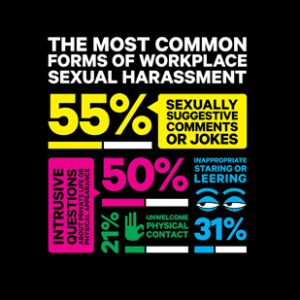By Harleen Kaur
Myths regarding Sexual Harassment
Yes, here we go again. Talking about women rights, as if we don’t have enough people doing that already. In this article, I am attempting to bust some myths around the issue of sexual harassment of women at workplace and the law which was passed in 2013. This law made it mandatory for every office, be it a government office or a startup to have certain systems in place which can curb the incidences of sexual harassment.
Sexual Harassment cannot happen in my office
#1 Never ever, in my career of 20 years have I ever seen a single instance of sexual harassment at my office, no one would dare do such a thing as we all are ‘well read’ and ‘civilized’
Even if we presume that you have neither been the perpetrator nor a victim of sexual harassment at workplace your entire career, can you be sure that ALL your ‘well read’ colleagues are the same?
Would you consider Tarun Tejpal, a journalist, an exception to your rule?·
What do you feel about a leading scientist, RK Pachauri who is an accused in a sexual harassment case by a colleague·
Or the Judge from Madhya Pradesh who was let off because of lack of proof?·
These are very few examples, a drop in the ocean. The most logical reason why you probably haven’t heard of such things your entire career is that this behavior takes place publicly in rare scenarios and that women are not encouraged to speak up if they face harassment. If she decides to speak about it, she is told that it was just a casual comment or that she is oversensitive and she should learn to ‘live with it’. In the alternate, she could have been forced to not speak about it for the sake of her employment. The truth is that since this law was passed, the number of incidents reported has grown – a direct indicator that the law is somewhere hitting at the right place.
Does Sexual Harassment Compliance require professionals?
#2 My company has Internal Complaints Committee. They will handle the situation if anything happens.
It’s a myth that the sexual harassment act is just about having a committee which will look into the issues once an untoward incident happens. The act mandates actions like:
- Conduction of regular workshops and seminars for employees
- Putting up notices giving information about the preventive programs of the employer
- Making and implementing an anti-sexual harassment policy
- Training the members of Internal Complaints Committee
- Hiring expert members who know the law or have been working in this field
- Maintaining reports and submitting them to an officer appointed by the government
According to the law, the employers are responsible for the well-being and safety of their employees and there is a provision for fine up to INR 50000/- for not complying with it apart from chances of being.
Bias and presumptions regarding sexual harassment law
#3 Great, now there is another law to misuse for women!
I agree with you that it would have been much better if the law were gender neutral. In fact, your company can still make its policies in that way without there being a need for a law to come in place, which might come one day. On the other hand, one has to agree that there was a genuine need for the present law as well. Women are constantly discriminated, bullied and harassed at workspace which has led to the situation where there is lesser workforce participation of women in the country as compared to other developing ones. This law is not just for women, it is for any individual who feels that a push needs to be given to employers to ensure safe working environment to their employees.
Need to maintain workplace diversity
#4 Rather than having to go through such hassle, it is better for me to not hire any woman in my office
Contrary to the popular belief, that just because you do not have any woman at the office, you are not required to comply with the act is untrue. Though you might not have to make an Internal Complaints.
Committee, you still have to comply with the other provisions of the act which include training people, conducting workshops, submitting reports as there is a high chance that at least one of your client or a vendor or an intern or a maid is a woman.
These are just tip of the iceberg, I am sure there are a lot of more practical problems which can arise and need to be taken care of professionally.
Brief about Writer:

Harleen is working with National Institute of Public Finance and Policy (NIPFP) as Health Policy Consultant. This article was originally posted by her own blogroll. The view expressed here is personal. For more write-ups, please Click Here



















